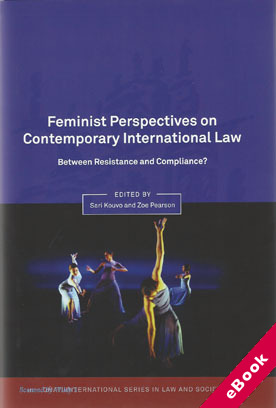
The device(s) you use to access the eBook content must be authorized with an Adobe ID before you download the product otherwise it will fail to register correctly.
For further information see https://www.wildy.com/ebook-formats
Once the order is confirmed an automated e-mail will be sent to you to allow you to download the eBook.
All eBooks are supplied firm sale and cannot be returned. If you believe there is a fault with your eBook then contact us on ebooks@wildy.com and we will help in resolving the issue. This does not affect your statutory rights.
The essays in this volume analyse feminism's positioning vis-à-vis international law and the current paradigms of international law. The authors argue that, willingly or unwillingly, feminist perspectives on international law have come to be situated between 'resistance' and 'compliance'. That is, feminist scholarship aims at deconstructing international law to show why and how 'women' have been marginalised; at the same time feminists have been largely unwilling to challenge the core of international law and its institutions, remaining hopeful of international law's potential for women. The analysis is clustered around three themes: the first part, theory and method, looks at how feminist perspectives on international law have developed and seeks to introduce new theoretical and methodological tools (especially through a focus on psychoanalysis and geography). The second part, national and international security, focuses on how feminists have situated themselves in relation to the current discourses of 'crisis', the post-9/11 NGO 'industry' and the changing discourses of violence against women. The third part, global and local justice, addresses some of the emerging trends in international law, focusing especially on transitional justice, state-building, trafficking and economic globalisation.